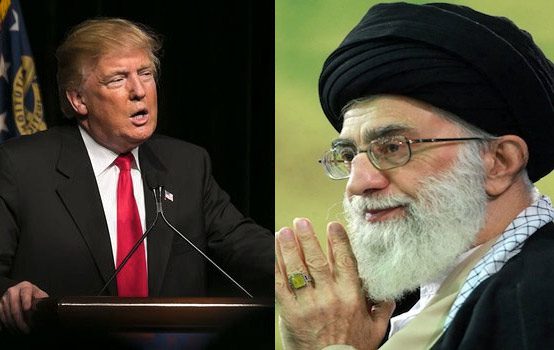Trump’s Iran Policy Won’t ‘Work’, and That’s a Good Thing

Richard Sokolsky and Aaron David Miller conclude that increasing U.S. sanctions pressure on Iran won’t achieve anything except to hurt the Iranian people and ratchet up regional tensions:
The Trump administration can cause Iran severe pain, but it cannot trigger massive internal unrest that that will precipitate the collapse of the regime or a fundamental change in Iran’s regional behavior.
Instead, the administration’s strategy promises more hardship for the Iranian people, more tensions in the region, more divisions between the U.S. and its European allies — and more risks of a U.S.-Iranian conflict with unpredictable and dangerous consequences for America’s interests in the Middle East.
Sokolsky and Miller are correct that the administration’s policy of regime change in all but name won’t succeed. It is worth adding that the goal of regime change is a dangerous and destructive one, and the U.S. has no right trying to force the collapse of another country’s government. We know from the experience of the last 18 years that regime change produces a more chaotic, unstable country than before, and it is likely to empower militants, sectarians, and hard-liners. I doubt that the current Iranian government is going anywhere for the foreseeable future, but seeking to cause regime collapse in a region that already suffers from multiple wars and weakened states is lunacy that serves no genuine U.S. security interests.
Judah Grunstein points out in a valuable column that if Trump’s Iran policy were to “work” it would be a catastrophic success whose consequences would be unwelcome for the U.S., Iran, and the surrounding region:
Instead, a regime in its death throes would likely lash out dangerously, with implications for U.S. interests and regional allies. And as the recent history of regime change in the Middle East demonstrates, the beneficiaries have frequently been the most disciplined armed actors. In Iran’s case, that would most likely transform the IRGC from a power behind the throne into the power on the throne.
An alternative would be a political vacuum in Iran resulting in instability that may or may not remain contained within its borders. In such a scenario, the IRGC would be, if not the dominant actor, at least a major contender. In either case, it’s hard to see the IRGC feeling any incentive for maintaining restraint with regard to regional interference or targeting the U.S. and its regional allies. The impact on global oil supplies and, by extension, the world economy would also be hard to contain.
Iran is one of the largest countries in the region, and it is one of the relatively most stable. Whatever other disagreements the U.S. and Iran may have, the U.S. and the region are both better off with an Iran that remains stable and at peace. Nothing good would come from turning Iran into a much larger Syria, and whatever emerged from the chaos of regime collapse is unlikely to be less authoritarian and illiberal than the current regime. The only reason to seek the collapse of Iran’s government is if you want to subject tens of millions more people to chaos, upheaval, and war for years to come. Certainly no one interested in the welfare of the Iranian people would seek to force such an outcome. Strangling the country economically in the hopes of triggering an uprising against the government is immoral and won’t work, but it is nonetheless insane to try to destabilize a country of eighty million people for the benefit of a handful of reckless regional clients. It is true that Trump’s Iran policy is failing, but we should all earnestly hope that it never comes close to succeeding.
Comments